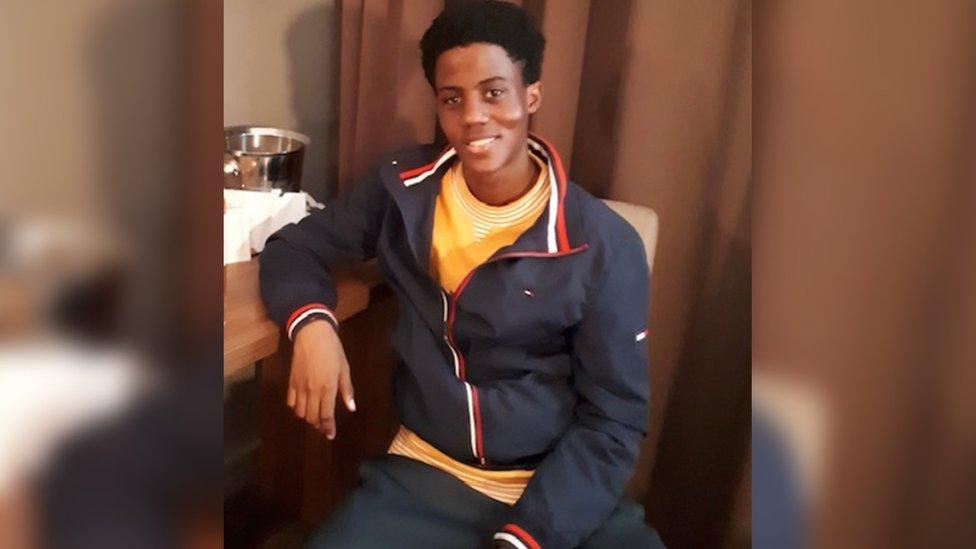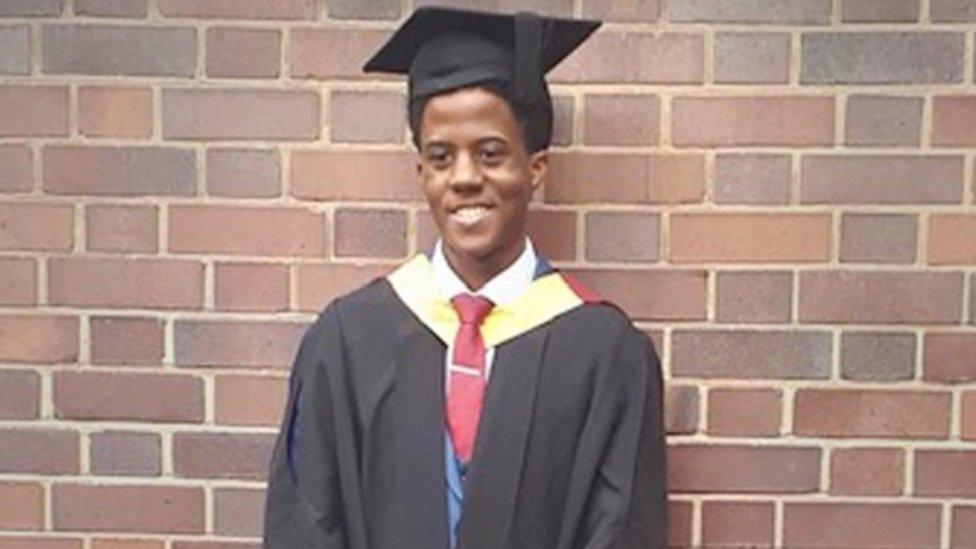Evan Smith inquest: Hospital 'failure' led to sepsis patient's death
- Published

Evan Smith called 999 while in hospital because nurses refused him oxygen, an inquest has heard
A man who suffered a sickle cell crisis and rang 999 from his hospital bed would not have died if medics had offered him a blood transfusion sooner, a coroner has said.
Evan Smith, 21, died on 25 April 2019 at North Middlesex Hospital, in north London, after he developed sepsis.
Barnet Coroner's Court heard he was denied oxygen when he requested it.
The coroner said there was a "failure" to appreciate the "significance" of Mr Smith's symptoms.
Mr Smith, a football stats analyst, developed sepsis following a procedure at the hospital a week earlier to remove a gallbladder stent.
He also suffered from sickle cell disease, external - a condition which affects red blood cells and is common among people of African and Caribbean heritage - and oxygen is routinely used to treat low blood saturation.
On 23 April, nursing staff told Mr Smith he did not need oxygen when he requested it, the court heard, because his blood saturation was high enough.
He was being held in a "lodger" bed - which can be added to a ward for extra capacity when no regular beds are available - and did not have access to piped oxygen or a call bell.
'Lack of understanding'
Mr Smith then called the London Ambulance Service because he thought it was the only way to get help, the inquest was told.
He was prescribed oxygen and given a transfusion late on 24 April, but was already in the early stages of sickle cell crisis and suffered a series of cardiac arrests before he died the following day.
Coroner Dr Andrew Walker said Mr Smith's life may have been saved if a blood transfusion had been given when he requested help, but did not make a finding of neglect.
"The delay in treating Mr Smith with a timely exchange transfusion was the cause of his death," Dr Walker said.
He found there was a "lack of understanding of sickle cell disease in the medical and nursing staff looking after Mr Smith".
Dr Walker said although staff provided basic medical care, it was the "wrong" care.

Evan Smith suffered from sickle cell disease - a condition which affects red blood cells
The court heard that nurses did not have specific training in managing sickle cell disease, despite serving an area with a large African and Caribbean community.
Dr Walker continued: "There was a failure to appreciate the significance of those symptoms by those looking after Mr Smith at the time."
Parents Charles and Betty Smith, said their son had died in a "tragic way" and they hoped "no other family would ever have to go through" what they had.
Charles Smith said they were "hoping lessons could be learned", and added they would be requesting a "full and transparent" investigation into their son's death by the hospital.
The hospital's medical director Dr Emma Whicher said the facility conducted an internal investigation into Mr Smith's treatment and it "recognises it should have been better".
The court heard that since Mr Smith's death, North Middlesex Hospital now has a dedicated ward for sickle cell patients, and that staff in the wider hospital setting are receiving extra training.
Related topics
- Published1 April 2021
